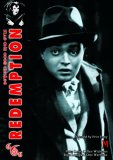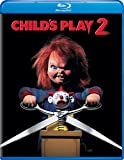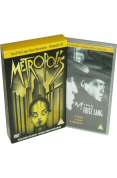 European Concert 1993 | DVD | (29/04/2002)
from £N/A
| Saving you £N/A (N/A%)
| RRP
European Concert 1993 | DVD | (29/04/2002)
from £N/A
| Saving you £N/A (N/A%)
| RRP For their third annual May 1 European Concert commemorating the date that the orchestra was founded, the Berlin Philharmonic chose to perform in the Royal Albert Hall in London under Bernard Haitink. Haitink was then the music director at Covent Garden, and he brings an operatic intensity to their first item, Tchaikovsky's Romeo and Juliet Overture. He characterises it brilliantly, with stirring religious solemnity for Friar Lawrence's music and fiery explosions in the fight sequence. Frank Peter Zimmerman then gives a forthright, heavily late-romantic reading of Mozart's Violin Concerto No. 3 which might not be to everyone's taste, but which seems somehow appropriate in the Victorian splendour of the hall. The Rite of Spring allows the orchestra to show off its star woodwind players, who cope with the score's taxing wind writing with polished brilliance. The opening sounds fantastic, and Haitink tailors the tempo to the boomy acoustic so that not a detail is lost. It's a performance literally dripping with energy: you can see the sweat pouring off the players as they dig into the piece's meatier moments. Overall, this is an excellent concert from an orchestra on top form. On the DVD: European Concert, 1993 includes a 28-minute documentary in German about the Albert Hall, and the Berlin Philharmonic's visits to the UK. There's fascinating substantial footage of Furtwängler conducting the orchestra in London, and a long interview with Haitink in which he discusses his relationship with the BP. There are subtitles in English, French, German, Italian and Spanish.--Warwick Thomson
![Mozart: Piano Quartets K 478 And K 493 [1988]](/pictures/1028429.jpg) Mozart: Piano Quartets K 478 And K 493 | DVD | (02/12/2002)
from £N/A
| Saving you £N/A (N/A%)
| RRP
Mozart: Piano Quartets K 478 And K 493 | DVD | (02/12/2002)
from £N/A
| Saving you £N/A (N/A%)
| RRP Wolfgang Amadeus Mozart : Piano Quartet G minor K 478 Piano Quartet E-flat major K 493
 M | DVD | (09/01/2006)
from £N/A
| Saving you £N/A (N/A%)
| RRP
M | DVD | (09/01/2006)
from £N/A
| Saving you £N/A (N/A%)
| RRP A psychotic child murderer stalks a city and despite an exhaustive investigation fueled by public hysteria and outcry the police have been unable to find him. But the police crackdown does have one side-affect it makes it nearly impossible for the organized criminal underground to operate. So they decide that the only way to get the police off their backs is to catch the murderer themselves. Besides he is giving them a bad name.
 Fischer-Dieskau-Autumn Journe | DVD | (16/07/2007)
from £N/A
| Saving you £N/A (N/A%)
| RRP
Fischer-Dieskau-Autumn Journe | DVD | (16/07/2007)
from £N/A
| Saving you £N/A (N/A%)
| RRP Autumn Journey is a filmed portrait of the life and work of the great German baritone Dietrich Fischer-Dieskau one of the great musical giants of the 20th century. Along with Richter Oistrakh Menuhin Rostropovich Casals and Callas he represents a truly golden era of great artists not only remembered for their extraordinary live performances but whose musicianship has also left to the world an unrivalled legacy of recordings. Filmed on the occasion of his 70th birthday Fischer-Dieskau reveals for the first time many of the secrets of his outstanding success. In typically modest style this prolific singer talks about his life the remarkable influences which have guided his career musical interpretation his colleagues and his attitude towards Italian Russian and French repertoire. Performance extracts include works by Schubert Schumann Strauss Brahms Mahler Wolf Bach Verdi Mozart Wagner Reimann Berg Henze and Britten. This special DVD package includes an 85-minute recital of 23 songs by Franz Schubert from the Opera Theatre of Nuremberg in which Dietrich Fischer-Dieskau is accompanied by Hartmut H''ll.
 CHILD'S PLAY 2 - CHILD'S PLAY 2 (1 BLU-RAY) | Blu Ray | (28/08/2018)
from £N/A
| Saving you £N/A (N/A%)
| RRP
CHILD'S PLAY 2 - CHILD'S PLAY 2 (1 BLU-RAY) | Blu Ray | (28/08/2018)
from £N/A
| Saving you £N/A (N/A%)
| RRP  Metropolis/M - Ultimate Box | DVD | (22/11/2003)
from £N/A
| Saving you £N/A (N/A%)
| RRP
Metropolis/M - Ultimate Box | DVD | (22/11/2003)
from £N/A
| Saving you £N/A (N/A%)
| RRP Metropolis: Set around the year 2000 a mammoth city is ruled by the super-efficient industrialist Jon Fredersen (Alfred Abel) and on the surface appears to be a utopian dream with wealthy inhabitants living in palatial apartments set in colossal glass and concrete spires. But underground it's a different story - armies of slaves work gruelling shifts to maintain the luxurious lifestyles of their masters. The workers a subhuman species of sluggish creatures are led by the saintly Maria (Brigitte Helm) who urges them not to rebel but to wait patiently for the arrival of the mediator. Fredersen kidnaps Maria and orders mad scientist Rotwang (Rudolf Klien-Rogge) to create a robot replica to take her place. His plan is doomed when the evil mechanical Maria incites the massed workers to revolt and destroy everything in sight... Taking 16 months to film with a cast of 37 383 and costing over million at 1920s prices everything about this epic German science-fiction film which was inspired by the towering Manhattan skyline is gigantic. Although director Fritz Lang hated the ending of his film it was an instant hit with Adolf Hitler and Goebbels who first saw it in a small German town. When they came to power in 1933 they asked Lang to make prestige pictures for the Nazi party. He packed his bags and left for Hollywood the same day. On its first release it was a box-office flop and nearly bankrupted its financiers UFA Germany's largest film production company. Metropolis is now a monument to Fritz Lang's artistic vision and film craftsmanship. M: Like a brand the letter M has made its mark on film history with its disturbing theme having lost none of its impact or relevance. Sinister dark and foreboding M tells the story of Hans Beckert (Peter Lorre) - child molester and murderer. Tension builds - a child late home another child missing. Posters reveal the fate of earlier victims and the police seem to have few clues as to the perpetrator of the crimes. Gangsters beggars and petty criminals incensed by both the crimes and the police crackdown track the killer themselves. Cornered caught and dragged off to face an equally barbaric form of justice Beckert endures his own personal torment. As with his earlier classics Die Nibelungen and Metropolis Lang collaborated on the script with his wife Thea von Harbou in what was to become his most stark and uncompromising film. Allegedly based on the story of Peter K''rten the Monster of Dusseldorf M remains one of the most chilling serial-killer films ever produced.

Please wait. Loading...
This site uses cookies.
More details in our privacy policy